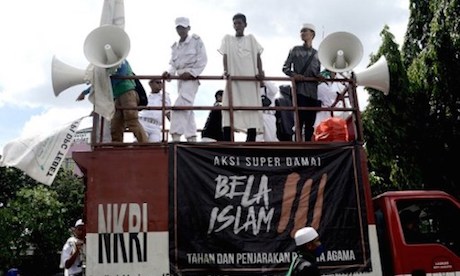The Indonesian bishops’ conference has backed a government minister’s appeal against hate sermons that promote religious or ethnic intolerance.
Religious Affairs Minister Lukman Hakim Saifuddin, issued the appeal on April 28.
It contained nine points targeted at religious preachers and the broader public.
Bishop Yohanes Harun Yuwono of Tanjungkarang, chairman of the Commission for Ecumenical and Interreligious Affairs of the Indonesian Catholic bishops’ conference (KWI) welcomed the appeal and said that sermons should promote harmony.
“As a religious leader, I am embarrassed that the call to deliver a good sermon has had to be conveyed by government officials,” he said.
“There would be no need for such an appeal if religious leaders understood their tasks better.”
Yuwono said the Catholic Church wants priests to preach noble values of humanity that build true brotherhood. “Surely, they must also preach diversity and love for all people.”
Zainud Tauhid Saadi, deputy chairman of the Indonesia Ulema Council, the top Muslim clerical body, also supported the appeal.
However, since the appeal was not legally binding, he was worried that it would not work effectively.
Hendardi, chairman of rights watchdog the Setara Institute, said the appeal was one way to stop hate speeches.
However, he also said the appeal would not have a significant impact if it is not enforced.
“In the context of using mosques to spread religious and ethnic sentiments during the election, the authorities should be ready to take action,” he said.
“The Jakarta election has become a lesson for us all. We do not want similar situations to recur in future, especially in the 2019 presidential election”.
“The quality of democracy is not merely being rooted in the outcome of an election but in how the electoral process stands and promotes the values of democracy.”
Source
